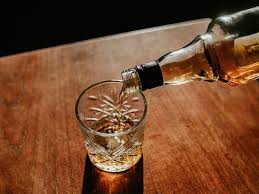
Americans Unaware of Alcohol’s Cancer Risk, Survey Reveals
Despite growing public health efforts to highlight the dangers of excessive drinking, a new survey has revealed that less than half of Americans recognize the link between alcohol consumption and cancer risk. The findings, released by the Annenberg Public Policy Center, underscore the uphill battle health advocates face in countering decades of pro-alcohol marketing and positive portrayals in media.
“Public health messages about the risks associated with drinking alcohol have to overcome the effects of decades of sophisticated marketing and positive media portrayals,” said Patrick Jamieson, director of the Annenberg Public Policy Center, which conducted the study.
Alarming Misconceptions
The nationwide survey involved 1,744 adults and revealed that six in ten respondents were unaware of alcohol’s role in increasing cancer risk. About 40% were unsure if alcohol posed a risk, while 20% falsely believed drinking had no effect or could even lower cancer risk.
The U.S. Centers for Disease Control and Prevention (CDC) clearly states that alcohol consumption raises the risk of several types of cancer, including breast, liver, mouth, throat, and esophageal cancers. According to the CDC, reducing alcohol intake—or abstaining entirely—can significantly lower this risk.
The Drinking Divide
More than half of American adults drink alcohol regularly, with 17% engaging in binge drinking and 6% classified as heavy drinkers, based on CDC data. Binge drinking is defined as consuming four or more drinks in two hours for women and five or more for men.
Despite these sobering statistics, many Americans remain unaware of the health consequences. Experts attribute this gap in awareness to the pervasive influence of alcohol marketing, which often downplays the potential dangers of drinking.
Public Health Implications
The survey highlights a critical need for more effective public health campaigns to educate Americans about the risks associated with alcohol. Advocates argue that clearer warnings and stronger messaging could help counter misinformation and encourage healthier behaviors.
As the CDC emphasizes, “Lowering your risk for cancer can start with drinking less alcohol—or none at all.” For millions of Americans, bridging this knowledge gap could be a vital step toward better health.